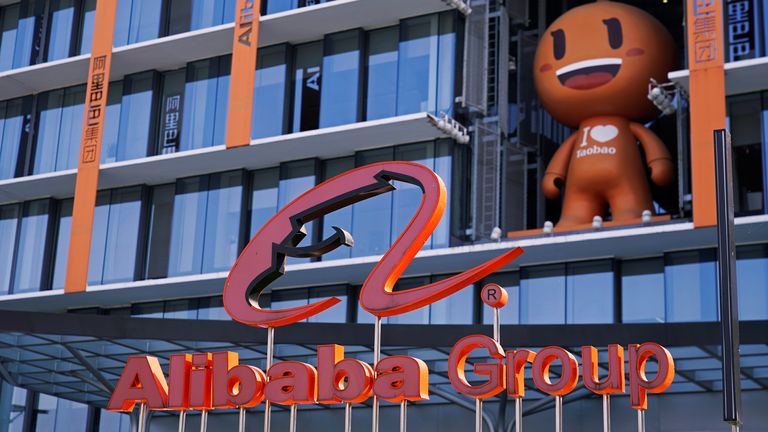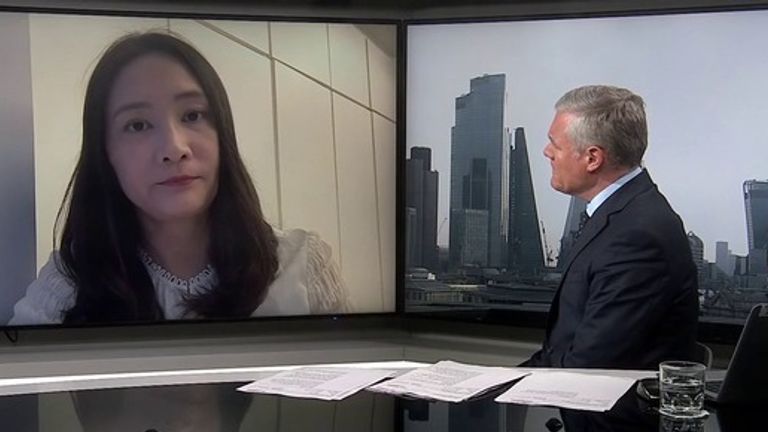Chinese e-commerce giant Alibaba has notched up sales of more than £42bn for its annual Singles’ Day sales event – but the extravaganza threatened to be overshadowed by plans for new regulation.
The running total announced by the company shortly after midnight showed the event was already 16 times bigger than US online retailer Amazon’s Prime Day last month.
Yet at the same time Alibaba shares plunged 8% with rival JD.com seeing a similar slump after China’s authorities set out proposals to tackle monopolies in the sector.
Singles’ Day, the world’s biggest sales event, already eclipses Black Friday and Cyber Monday in the US combined.
This year it is spread over four main days and shortly after midnight hit 372.3bn yuan (£42.5bn) in sales.
Last year’s 24-hour event saw sellers using the Alibaba platform notch up revenues of 268.4bn yuan (£30.6bn) in total.
The performance of the mammoth sales festival – first launched by Alibaba in 2009 – has become indicative of the strength of the Chinese consumer economy.
This year it comes as China enjoys an economic rebound after bringing the spread of coronavirus earlier in the year under control.
Restrictions elsewhere as other countries continue to battle the pandemic also means consumers who might normally make luxury shopping trips abroad are instead spending at home.
Alibaba’s sales event this year included a three-day period from 1 November to 3 November as well as the usual 11 November.
A star-studded gala launch included a livestreamed performance from Katy Perry.
Rival online retailers also held Singles’ Day events, with JD.com – which also started its promotions early this year – notching up more than 200bn yuan (£22.8bn) of sales in an early running total.
Ahead of the event, a survey by consulting firm Oliver Wyman found that 86% of Chinese consumers were willing to spend the same as or more than during last year’s festival.
Sean Shen, customer and strategy competence leader for EY in Greater China, said: “In the last six months or so, wealthy households have actually spent more money.
“We also see that purchases of luxury segment products are increasing because of the international travel restrictions.”
But it looks likely that after the extravaganza the sector could face a headache.
New Chinese proposals give guidelines on how the country’s 2008 anti-monopoly law will be applied to internet companies.
The announcement gave no indication that operators are accused of wrongdoing.
But it cited areas where regulators might look for problems including sharing of information and alliances or pricing services below cost to keep out new competitors.
That prompted a shares slide for Alibaba, only a week after it was previously hit when Chinese authorities pulled the plug on a record stock market flotation by payment services giant Ant Group – a company in which Alibaba has a big stake.



